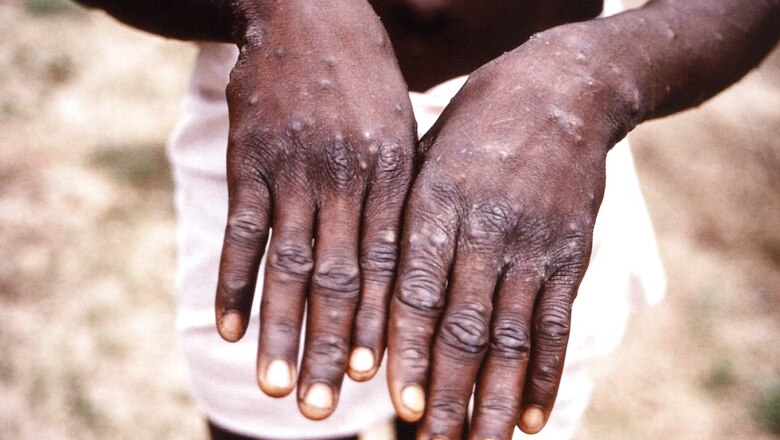
views
Union Health Minister Mansukh Mandaviya on Friday directed the National Centre for Disease Control (NCDC) and the Indian Council of Medical Research (ICMR) to keep a close watch on the monkeypox situation in India amid a rise in cases in a few countries. Officials, including airport and port health officers, have been asked to be vigilant and send samples to NIV Pune of suspected sick passengers from affected countries for further investigation.
“They have been instructed that any sick passenger with a travel history to Monkeypox-affected countries be isolated and samples sent to the BSL4 facility of the National Institute of Virology in Pune for an investigation,” an official source told news agency PTI.
However, a senior official clarified to news agency ANI that the samples that will be sent to NIV Pune will only be in cases where people display certain specific symptoms and not samples of all sick passengers.
Monkeypox situation | "Send samples (to NIV Pune) only in such cases where people display certain specific symptoms. Not samples of sick passengers," Senior official to ANI— ANI (@ANI) May 20, 2022
Cases of Monkeypox have been reported from the UK, the USA, Portugal, Spain, and some other European countries. In humans, the symptoms of Monkeypox are similar to but milder than those of smallpox.
According to the World Health Organization (WHO), Monkeypox manifests in humans with a fever, rashes and swollen lymph nodes and may lead to a range of medical complications. Monkeypox is usually a self-limited disease with the symptoms lasting from two to four weeks. It can also take a severe from, with the WHO saying the case fatality ratio has been around 3-6 per cent in recent times.
Monkeypox virus is transmitted from one person to another by close contact with lesions, body fluids, respiratory droplets and contaminated materials such as bedding. The clinical presentation of monkeypox resembles that of smallpox, the WHO says.
Transmission of the disease can also occur via the placenta from mother to fetus (which can lead to congenital Monkeypox) or close contact during and after birth, the world health body says. While close physical contact is a well-known risk factor for transmission, it is unclear at this time if monkeypox can be transmitted specifically through sexual transmission routes, according to the WHO.
(With inputs from PTI)
Read all the Latest India News here


















Comments
0 comment